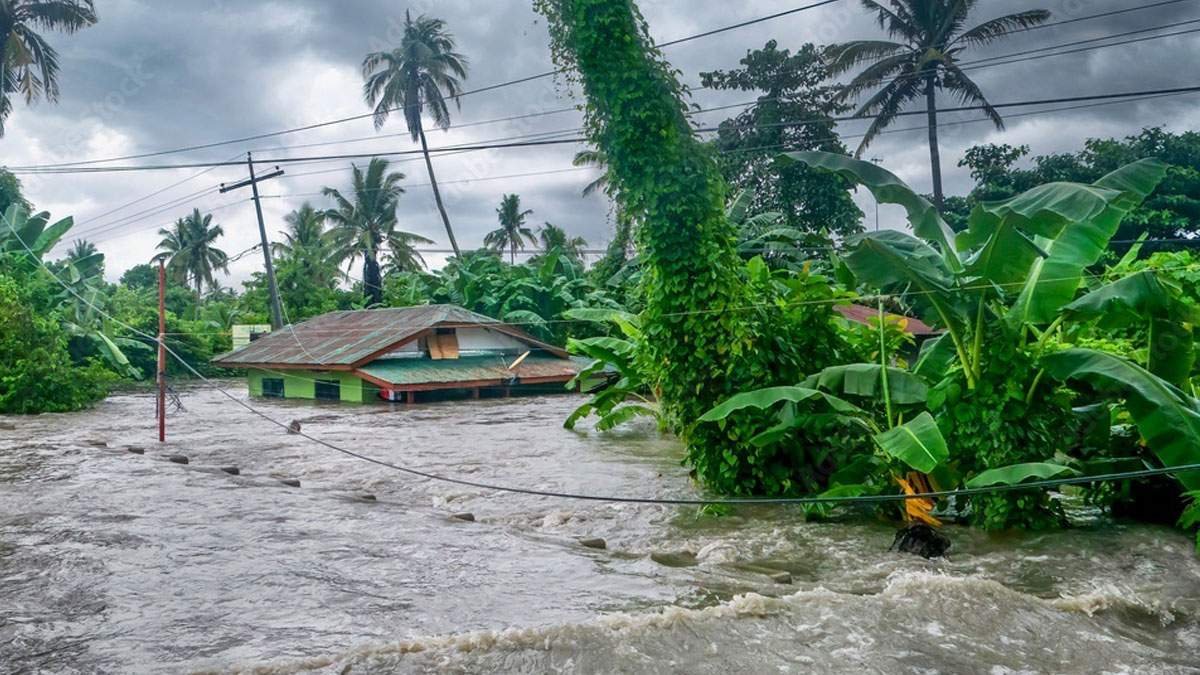What to do if caught in a flash flood?

Heavy rains have recently become present. And, flash floods and floods become an all-too-real possibility. And, when you live in areas that flood really easily, these dangerous weather occurrences can come suddenly and often without warning. The amount of rain simply overwhelms the drainage capacity of a given area. Flash flooding is very dangerous because, well, it happens in a flash and can literally happen in just minutes.
Flash food can catch you off-guard and put you in immediate danger, on your street or in your own home. Some floods develop slowly while flash floods can occur within minutes from tropical storms or hurricanes can cause storm surges in coastal areas, or when water containment systems break. The best advice is to listen to flood watches and warnings. That way, you know what to do to stay safe.
What to do if caught in a flash flood?
What should you do before a flood?
Be informed. Listen to the news. You will receive alerts, warnings, and public safety information before, during, and after emergencies. So, try to keep a fully-charged power bank with you to keep updated as long as possible.
Aside from that, create and review your family emergency plan. Have a plan to go to higher ground as quickly as necessary. If you live or work in a flood zone, be prepared to evacuate and assemble an emergency kit. This should include the following:
- Water: one gallon per person/per day for at least three days
- Food: at least a three-day supply of non-perishable foods that do not need cooking
- Tools and Supplies: manual can opener, radio, flashlight, extra batteries, cellphone with charger, wrench, pliers, and other basic tools
- Personal Items: two-week supply of prescription medications, personal hygiene items, eyeglasses or contact lenses, dentures, extra batteries or supplies for medical equipment, change of clothes, etc.
- Pets: collar, leash, harness, crate, food, bowls, etc.
- Documents: insurance policies, bank account records, IDs, medical information, and other copies of important documents
- Money: extra cash, traveler’s checks (ATMs may not work during a power outage)
- Other Items: first-aid kit, emergency whistle, lighter, local area maps, diaper, wipes, formula, and baby food and supplies, if needed
What to do when the rain rolls in and winds pick up?
During flood watch, you have to listen to public safety officials and the instructions they give. Remain alert to changing weather conditions and prepare to move to higher ground. You also need to consider postponing outdoor activities. If you have any things outside of your home, you need to either bring in outdoor objects or tie them down as they could be swept away or damaged during flooding.
You can also consider unplugging sensitive equipment before flooding occurs. But, do not touch electrical equipment if you are wet or standing in water. If you need to, elevate items stored by the floor before flooding occurs. You also need to avoid camping or parking along streams, rivers, creeks, or other areas prone to flooding during heavy rainfall. These areas can flood rapidly and with little warning.
What to do if you’re stuck in the car during a flash flood?
Six inches of rain can stall most cars. In eighteen inches of water, on the other hand, cars could float and be swept away. However, if you’re stuck in the car, don’t panic. A lot of experts suggest that you should unbuckle your seatbelt, lower your windows, and swim away. They also recommend not clinging to the car as it will continue to sink. Instead, you can swim with the flow of the water until you can find higher ground to climb onto.
NATIONAL DISASTER RISK REDUCTION AND MANAGEMENT COUNCIL (NDRRMC)
Trunk lines:
(02) 8911-5061 to 65 local 100
Operations Center:
(02) 8911-1406, (02) 8912-2665, (02) 8912-5668, and (02) 8911-1873
Office of Civil Defense – National Capital Region:
(02) 8421-1918
(02) 8913-2786
Office of Civil Defense – Region I:
(072) 607-6528
Office of Civil Defense – Region IV-A:
(049) 531-7266
NDRRMC Region IV-B:
(043) 723-4248
NDRRMC – Cordillera Administrative Region:
(074) 304-2256, (074) 619-0986, (074) 444-5298, (074) 619-0986
METRO MANILA DEVELOPMENT AUTHORITY (MMDA)
Hotline:
136
Viber:
(02) 8882-4151 to 77
local 337 (Rescue), local 1096 (Metrobase), local 1135 Road Safety), local 1168 (Public Safety), local 1169 (Road Emergency), and local 1162/ 1163 (Flood Control).
You can check more of the emergency hotlines in the Philippines here.
Angela Grace P. Baltan has been writing professionally since 2017. She doesn’t hesitate to be opinionated in analyzing movies and television series. Aside from that, she has an affinity for writing anything under the sun. As a writer, she uses her articles to advocate for feminism, gender equality, the LGBTQIA+ community, and mental health among others.





